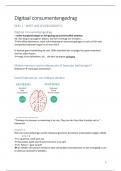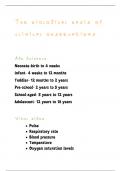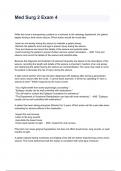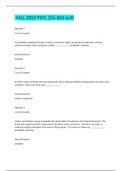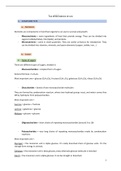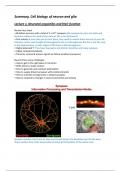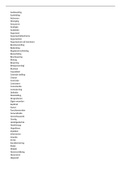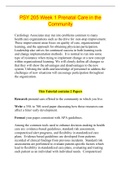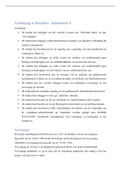Summary
Summary Civil procedure work from test 3 onwards
- Course
- Civil Procedure 371
- Institution
- Stellenbosch University (SUN)
Hi everyone, these are the last of the civil procedure notes, from after test 3 to the end of the year. They include everything discussed in lectures, with the textbook added everywhere where applicable, as well as all additional self-study and case law material. Lecturer: Mr SJH van der Merwe, Ste...
[Show more]





